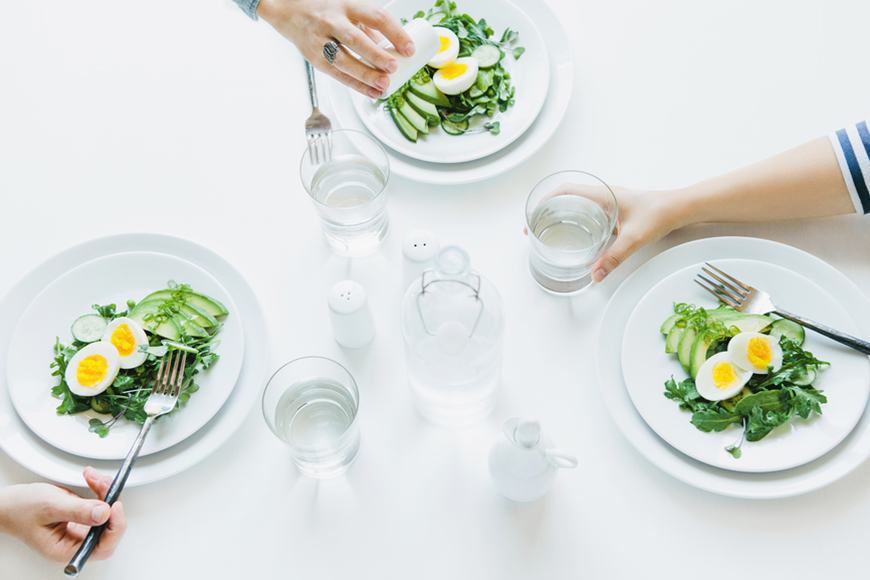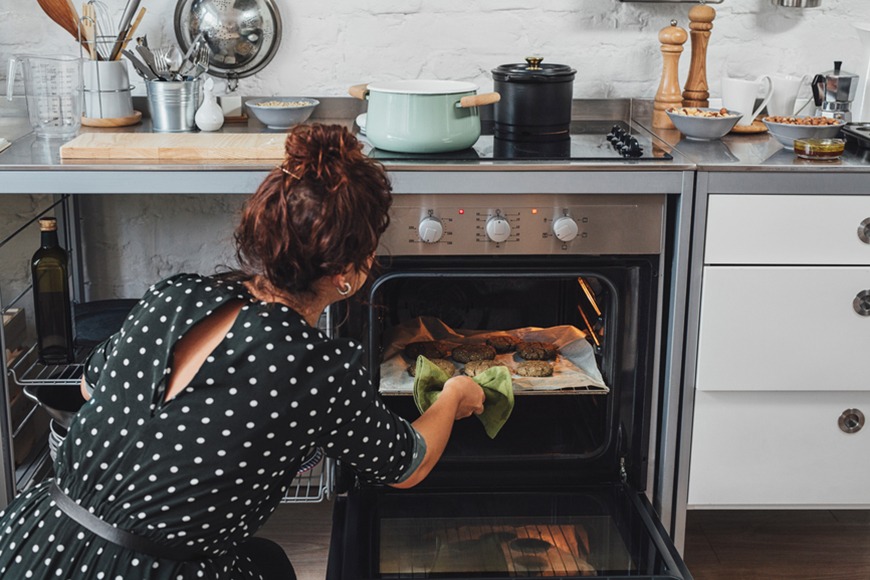Whether you're trying to pinpoint the cause of unpleasant digestive issues, eliminate sugar cravings, or just want to reset your body, the Whole30 plan is a pretty popular route to take. The sacrifices are great—no sugar, legumes, grains, or dairy allowed—but many swear it's worth it.
Still, going from a "normal" eating plan to something so restrictive (seriously, no hummus?) is pretty drastic. It made gut expert and Biohm founder Mahmoud A. Ghannoum, PhD—who actually is the one who coined the term "microbiome"—wonder exactly how the swift transition affects the gut.
Dr. Ghannoum and his team have a wealth of data at their disposal (gathered from the people who use Biohm's at-home testing kits) regarding how different diets change the bacteria levels in the microbiome—for better or for worse. Based on his research, Dr. Ghannoum's developed a strong opinion about the Whole30 diet: He does not recommend it. Intrigued? Keep reading to find out why he doesn't think it's the best way to go. Plus, his advice for getting to the root of digestive problems without eliminating so many foods at once.
Keep reading to find out how the Whole30 diet affects the microbiome.

What happens when you eliminate a variety of foods all at once
Dr. Ghannoum is all about the benefits the Whole30 promises. But he doesn't think eliminating so many foods is good for you—or even necessary: "A diet that restrictive really isn't healthful," he says. "Some of the foods the eating plan demands be cut out are actually good for you." Specifically, grains, dairy, and legumes.
"You really don't want to cut out grains unless you're truly celiac, intolerant, or have a wheat allergy," Dr. Ghannoum says. "Studies have shown that having a cup of whole grain barley or brown rice [a day] has been shown to decrease inflammation. That in itself is very good because many people have gut problems because of inflammation."
Similar to his philosophy with cutting grains, Dr. Ghannoum doesn't advocate nixing dairy, unless you are intolerant or allergic. "What we see from scientific research about dairy is that moderation is the way to go," he says. "Studies have shown that it is full of healthy proteins that are good for the body."
He also isn't a fan of the fact that the Whole30 calls for cutting out legumes, including chickpeas, black beans, and lentils. "These foods are very healthy," Dr. Ghannoum says, calling out the foods as being good sources of fiber, another nutrient linked to lowering inflammation. "The reason why the Whole30 asks people to cut out legumes is because of a compound called phytate [an anti-nutrient that impairs absorption]. But phytates are also found in meat, so even if you stop eating legumes, you aren't eliminating this compound completely."

How to reach your Whole30 goals in a less restrictive way
Many people who are fans of the Whole30 credit the diet to helping them cut sugar cravings and, separately, eliminating digestive problems. How exactly does Dr. Ghannoum recommend accomplishing the same goals?

{{post.sponsorText}}
When it comes to those pesky sugar cravings, Dr. Ghannoum has some real talk: "Having completely no sugar just isn't realistic because it's in so many things," he says. "But the key is to work toward having only a little—the World Health Organization says just six tablespoons a day—and spreading it out, not having it all at once. When you have a lot of sugar all at once, it overloads the body." Hence leading to a sugar high—and an inevitable crash.
And if you're experiencing digestive problems and are trying to figure out why, Dr. Ghannoum says you should try cutting one food group at a time—like grains or dairy—instead of everything all at once. "If you think you are sensitive to wheat, stop eating it and see if you feel better," he says. It turns out that yes, troubleshooting really can be that simple.
Speaking of sugar cravings, here's how caffeine can play a role. And if you are going to have sugar, here's the healthiest way to do it.
Loading More Posts...